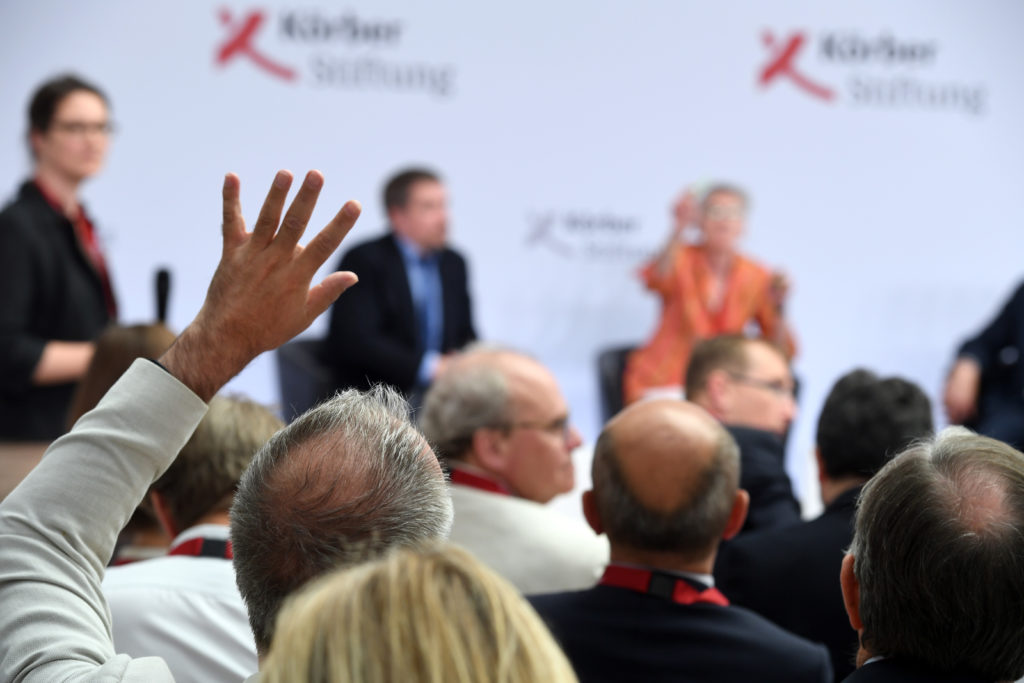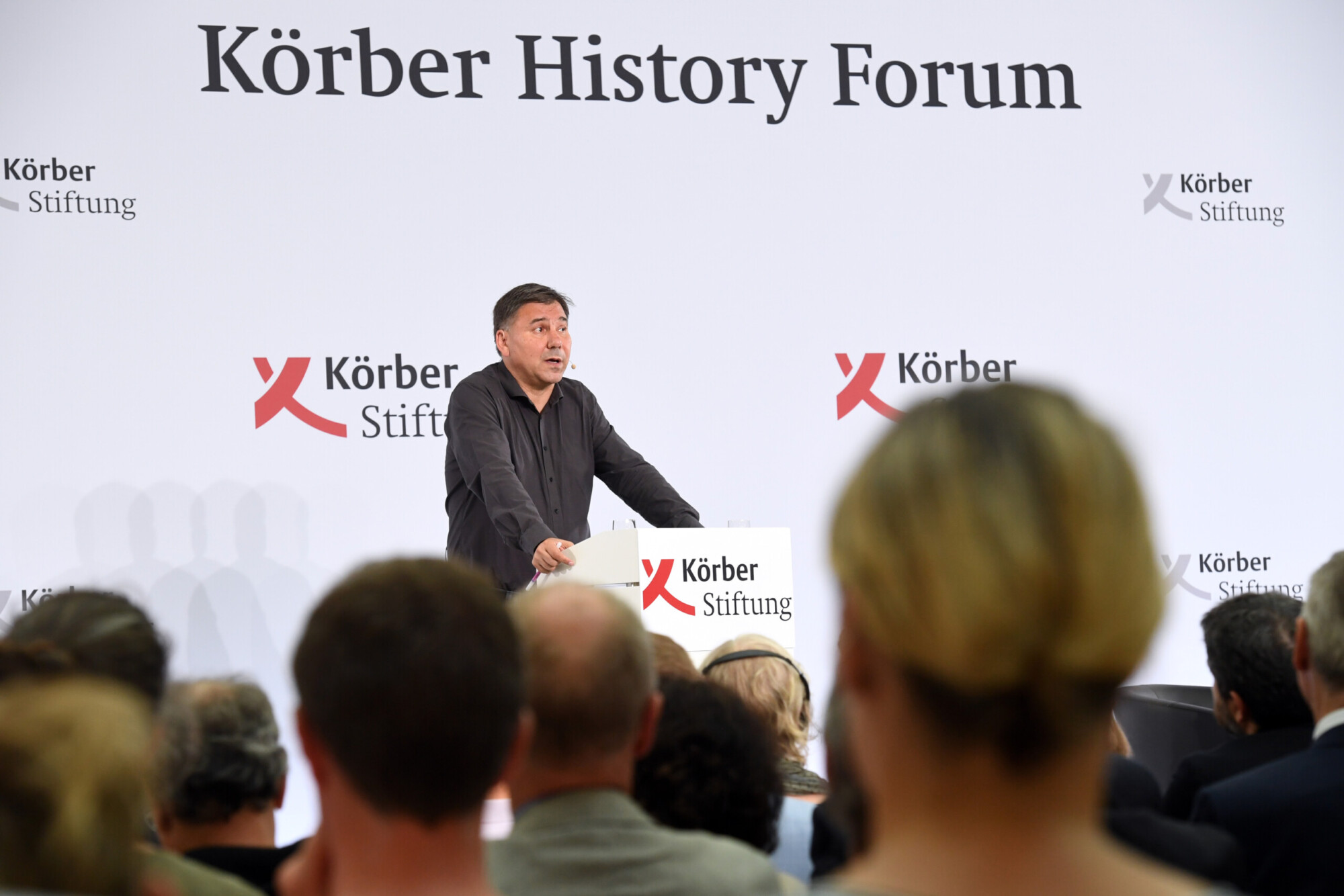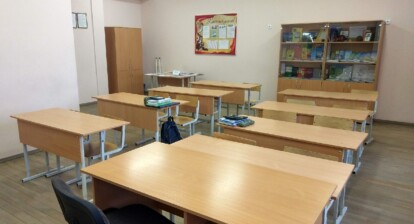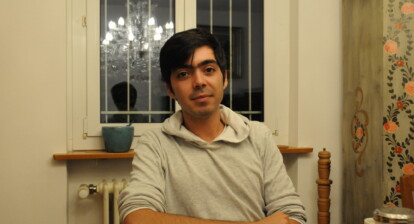In early summer the third Körber History Forum (KHF) took place in Berlin, Germany. It brought together 200 leading actors from politics, science and public life, intellectuals and opinion leaders from Germany, Europe, and the Middle East. Our author Linn Kreutschmann shares her impressions and thoughts while attending it, reflecting on how the reception of history changes if you have a personal connection to it.
When I entered the room, had a look around and saw all the adults around me, I started becoming nervous. Everyone was older than me, everyone was more experienced with life, everyone was able to call him or herself a part of history when they found themselves in situations later generations read about in their history books. And then there was me: Only 20 years old, not even born when Berlin Wall was falling. I started having doubts if I can already be a member of these discussion-loving, life-experienced people. Pretty soon, a question was built in my mind: How do people judge history differently when they have a personal connection or even experienced it themselves?
History by Experiences?
Most people might be touched if anything they once experienced would happen again. America’s president plans to build a wall between the USA and Mexico? How do people who grew up in the German Democratic Republic think about that? And how would I? At least I know about the feelings my parent’s generation had and would probably use it for my own judgement. But I was never involved directly. I never had a wall in front of my window, I never was restricted in travelling.
The refugee “crisis” and its impact on Europe was also discussed at KHF, and it was the first topic I had a personal connection to. “Immigration crisis is the 9/11 for Europe”, Ivan Krastev said in his keynote. My perception was a different one: During high-school I have had a few people in my grade, who had to flee from the countries they were born in. We had day trips or project days with groups of refugees and started to know each other the best way we had the chance to.
Connecting in an International way
Common celebrations of holidays in different religions, exchange of stories, a visit in the zoo or projects in our school we invited other people to – the spectrum of chances for getting to know each other better and better was wide. And as more we knew each other, the better we understood: We all are just young people, living on the same planet and now sharing the same values, having the same feelings, fears and dreams. How else could you start a stay abroad, connecting in an international way without ever realizing that all humans are – in a way – the same?
Listening to the discussion “Flight and integration as challenges for Europe”, the question from the opening arose again: How does an opinion about history change when you experienced it first hand? Being part of history in the way of experiencing parts of it gives you a unique view about the things that happened. It shows aspects you will care about the most when you think about it afterwards. As I think about all my positive experiences with refugees and how much I regarded them as individuals, not as symbols of a development or a “crisis”. Other people might have experienced different sides of the situation.
Integration: Challenge and Chance

A debate of shared experiences. (Photo: Körber-Stiftung/David Ausserhofer)
Everyone has his and her own story they want to tell because your own story always seems to be the most important one. When the panel speakers started to ask for questions by the audience, it seemed impossible for many to just ask a question. Instead they told how they experienced the situation and what they thought about it.
History definitely is about individual stories. And these individual stories are needed to make a situation become relevant for the next generation. That’s why we need people, who tell their stories and also people who discuss them.
To get the full picture of a historical situation you need to get many different perspectives about what has happened. Individual stories and experiences are just one part of it, but you will never be able to listen to all of them. That’s why you need summaries and classifications, contextualisations, observations and opinions of experts.
Could there be a better event to learn about the many perspectives on history than the Körber History Forum, where people from different countries and professional backgrounds come together to discuss history? And could there be a better starting point than being like a blank page I myself can fill with impressions, experiences and knowledge time by time?





